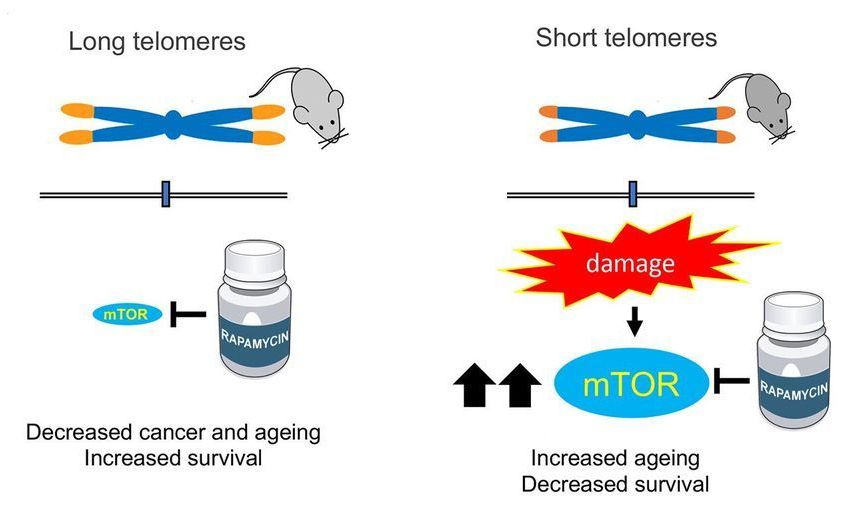In the past few decades, researchers discovered that the rate at which we age is strongly influenced by biochemical processes that, at least in animal models, can be controlled in the laboratory. Telomere shortening is one of these processes; another is the ability of cells to detect nutrients mediated by the mTOR protein. Researchers have been able to prolong life in many species by modifying either one of them. But what if they manipulate both?
A team from the Spanish National Cancer Research Centre (CNIO) has studied it for the first time, with unexpected results. Blocking nutrient sensing by treatment with rapamycin, an mTOR inhibitor, delays the aging of healthy mice, but curiously, it worsens diseases and premature aging that occur in mice with short telomeres. This finding has important implications for the treatment of diseases associated with short telomeres, but also for age-related diseases that are also associated with short telomeres. The study, done by the Telomeres and Telomerase Group headed by Maria Blasco at the CNIO, is published in Nature Communications with Iole Ferrara-Romeo as the first author.
Telomeres, regions of repetitive nucleotide sequences at the end of chromosomes, preserve the genetic information of the cells. They shorten with age until they can no longer fulfill their function: The cells stop dividing and the tissues age since they are no longer able to regenerate.
